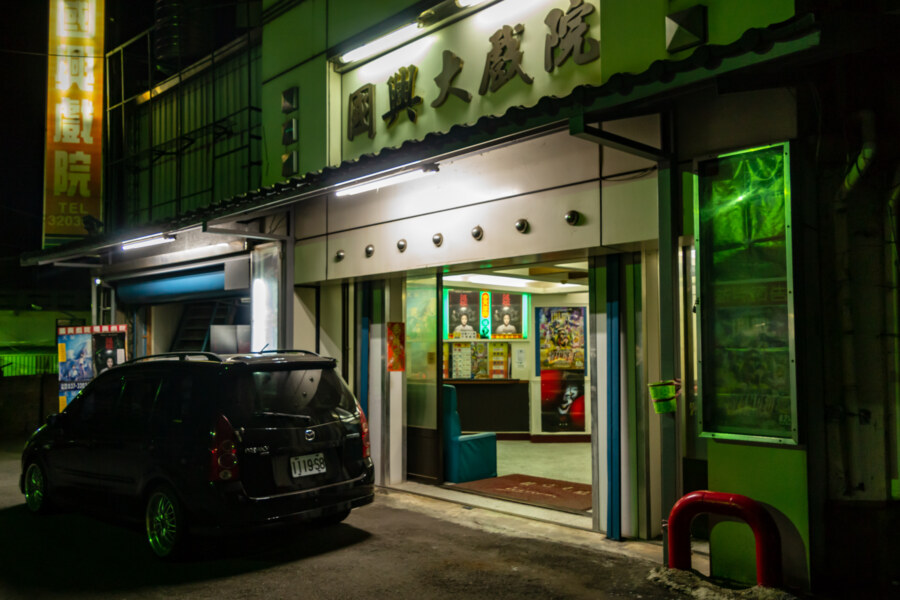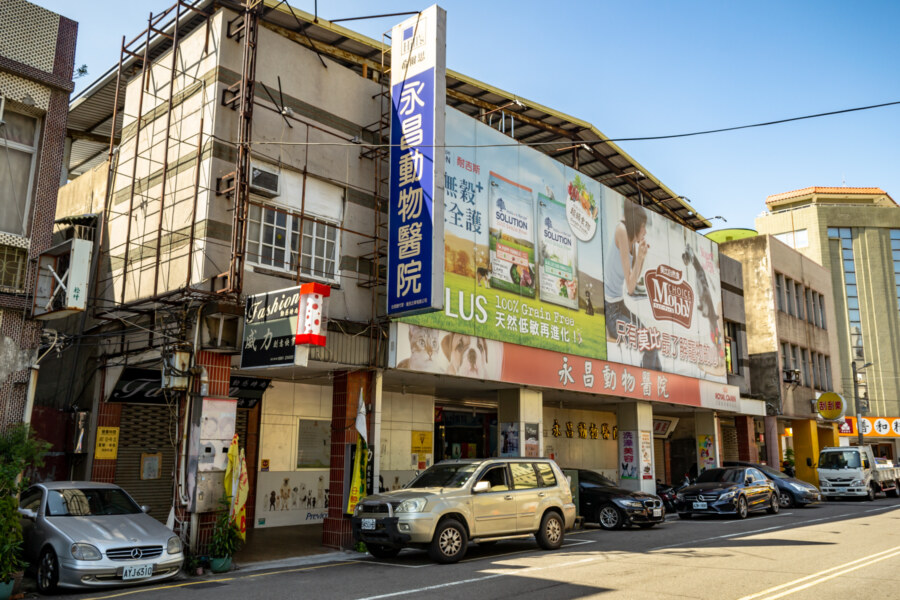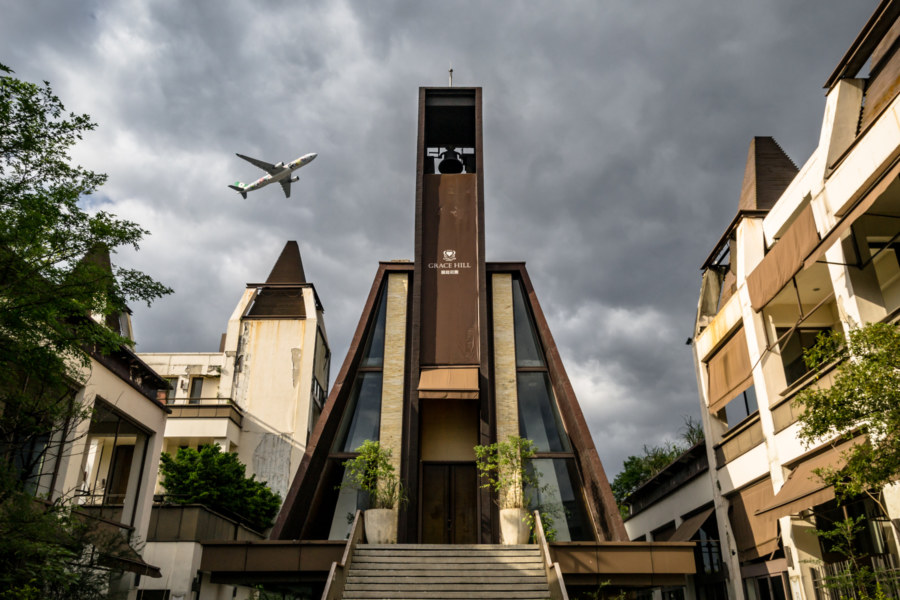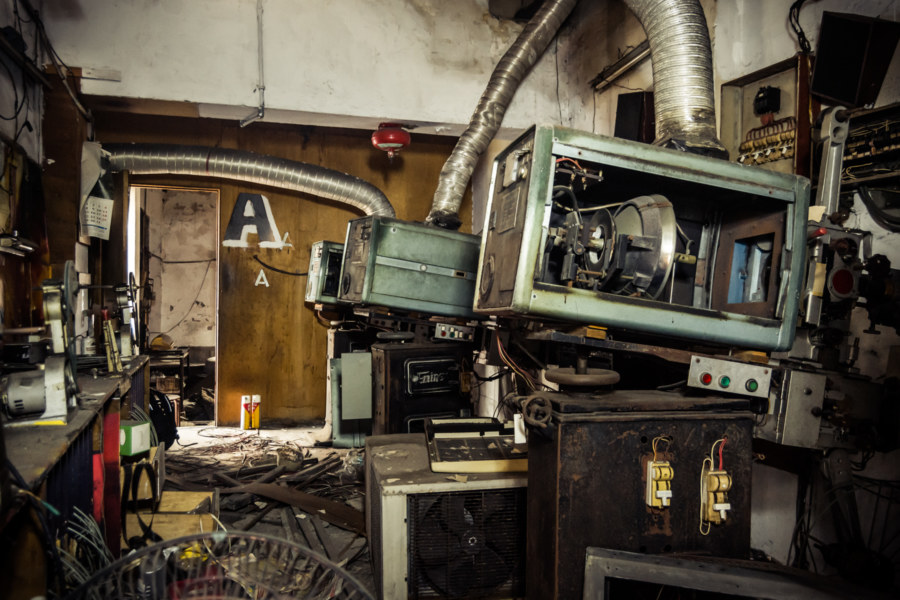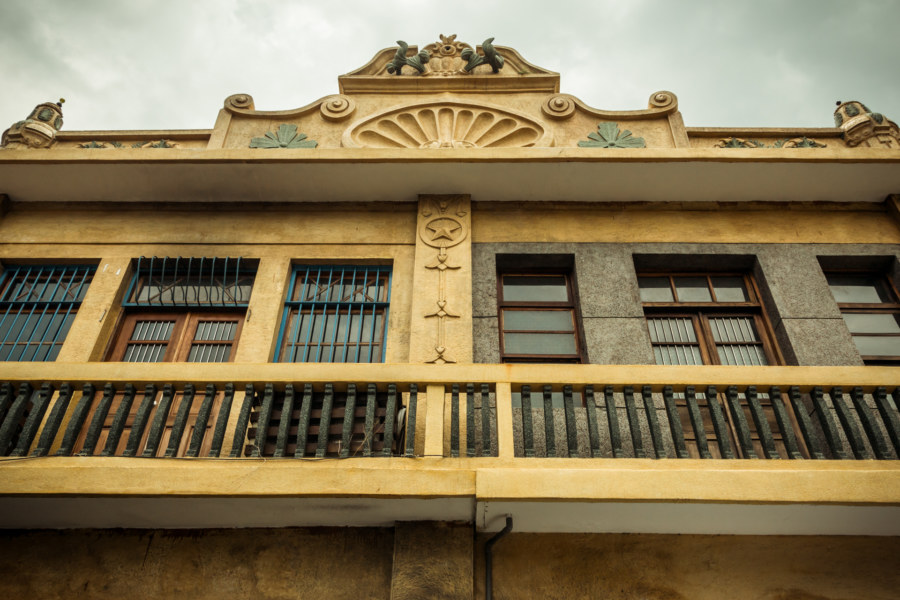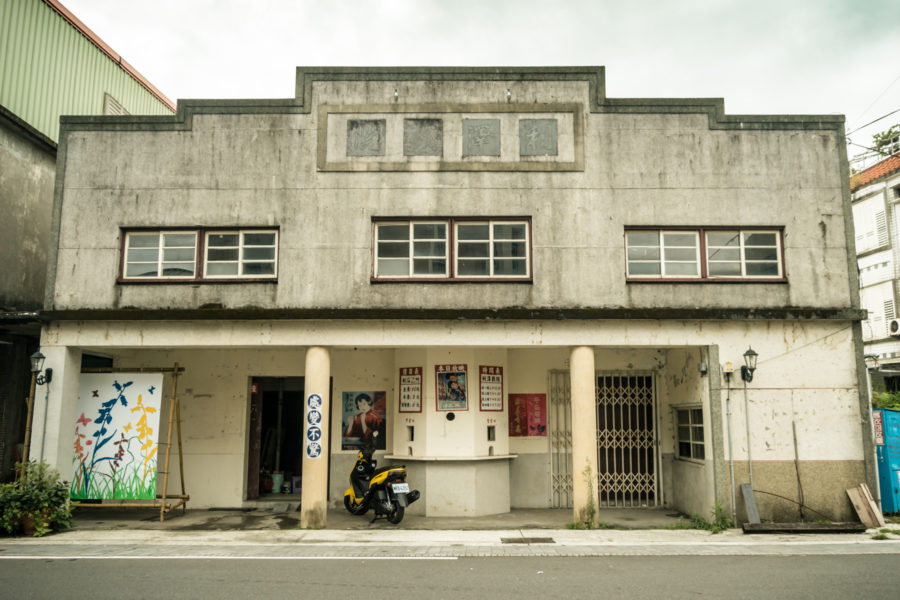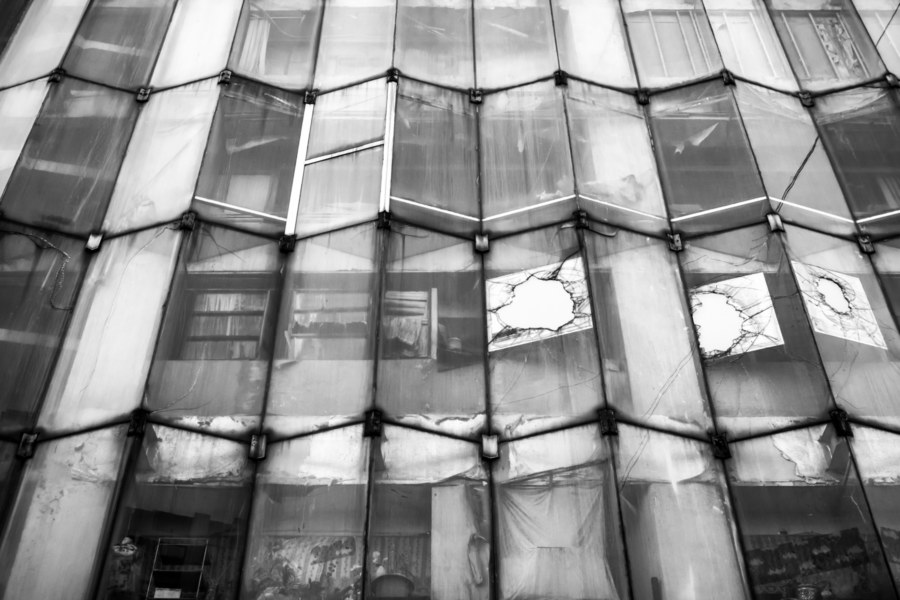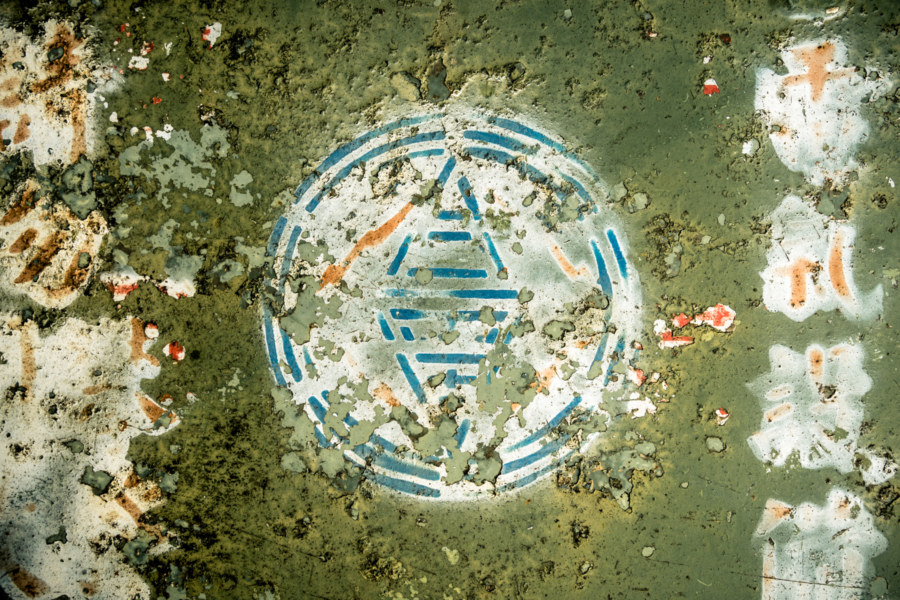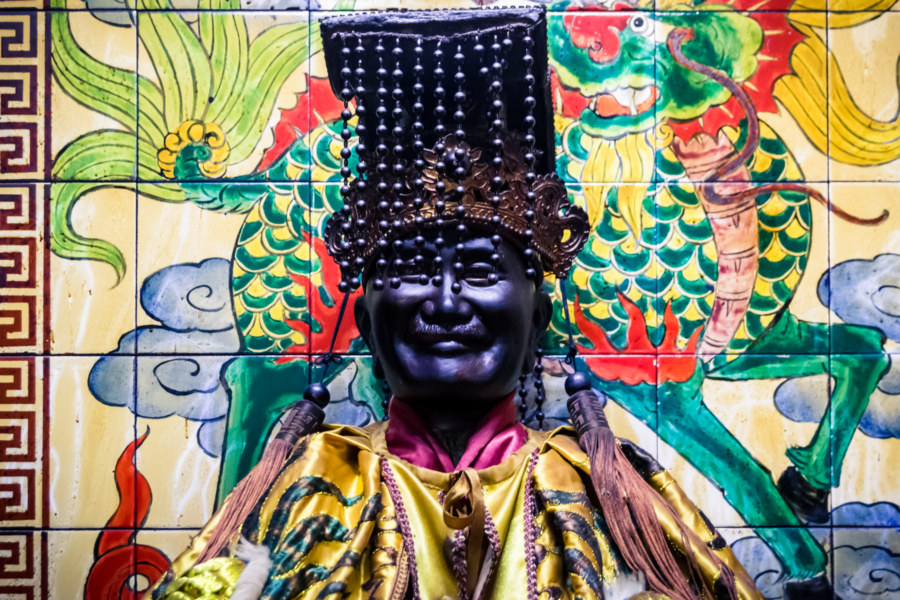Guóxìng Theater (國興戲院) was the very last standalone movie theater operating in Miaoli, Taiwan. After 70 years in the cinema business it closed for renovations in the final days of 2019, never to reopen. Apparently the intention was to return sometime after the Lunar New Year break in early 2020, but then the pandemic struck. Three years later it is probably safe to assume it’ll never show another film, marking an end to an era of independent cinema in Miaoli.
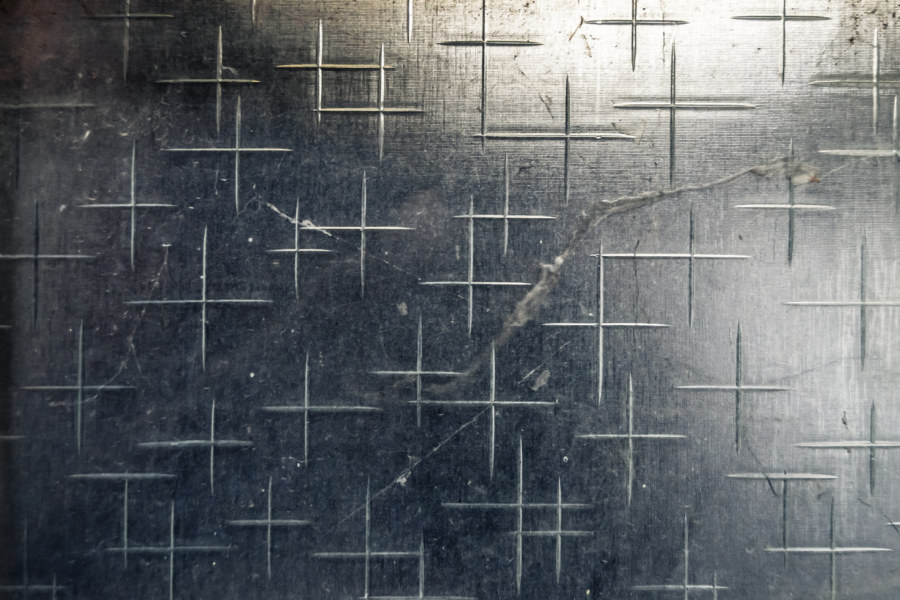
A top-level term for organizing content based on aesthetic.
Miaoli Theater 苗栗戲院
The former Miaoli Theater (苗栗戲院) is located in the heart of Miaoli City, a mid-sized settlement of 86,000 residents in north-central Taiwan. Approximately 30 theaters were once found scattered around Miaoli County—with at least 5 located here in the city, but as of 2023 only two of those remain standing (with Guoxing Theater being the other one). Few authoritative sources exist to substantiate the early history of Miaoli Theater, but evidence indicates it was operating in the 1950s, and movies were shown all the way into the early 2000s—an unusually long run for a standalone theater from this era. It was eventually sold, shut down, and converted into the Yǒngchāng Animal Hospital (永昌動物醫院), a pet supplies store and veterinarian clinic.
Huadong Valley Ride 2018: Yuli to Guanshan
Day four of riding through the Huadong Valley of eastern Taiwan in 2018 began in Yuli, the midpoint of this bicycle trip from Hualien City to Taitung City. From the weather report I knew I’d have another challenging ride ahead—yet again the mercury was due to exceed 35 degrees. Luckily I was in no great rush, as I had allocated an entire week for a trip that experienced riders could easily manage in two days. I made good use of that extra time, making numerous stops and detours to document some of the many historic and cultural sites along the way, many of them quite obscure. I ended the day in Guanshan, slightly more than 40 kilometers down the valley.
Grace Hill 麗庭莊園
Grace Hill (Lìtíng Zhuāngyuán 麗庭莊園) is a former wedding venue situated in an industrial park in Neihu, Taipei. It opened in 2005 under the management of the Zhǎngxìng Wedding Company (長興婚禮事業有限公司), an outfit keen to disrupt the local market with a larger, more extravagant space for weddings and other events. The business struggled at first but became more widely known after it was featured in television series, music videos, and the news. In 2007 the space was leased to Dears Brain (迪詩), a Japanese wedding company hoping to enter the Taiwanese luxury wedding market. The original owners took a step back, ceding control of day-to-day operations to Japanese management, and the business continued to grow over the next several years.
Zhongli Dadong Theater 中壢大東戲院
Zhongli is home to a surprising number of disused and abandoned cinemas, relics of a lost age of theater in this conurbation of half a million sprawling across the central Taoyuan Plateau 桃園台地. Decades ago there were nearly two dozen standalone movie theaters in town—but only Zhongyuan Theater 中源大戲院, one of two in Taiwan still displaying hand-painted movie posters, clings to life as of 2018. Most of the others have been renovated beyond recognition or demolished, but several more are derelict, hard-worn subjects of entropy. Among these relics there are none more alluring than the imposing Dàdōng Theater 大東戲院 (literally the “Great Eastern Theater”), former anchor of Zhongli’s long-vanished Cinema Street 戲院街.
Postcards From Xiluo 西螺明信片
Xiluo is a small historic town on the south bank of the Zhuóshuǐ River 濁水溪 in Yunlin. It emerged as an important center of trade in central Taiwan during the Qing dynasty era and continued to prosper into the early 20th century under Japanese colonial rule. Disaster struck in 1935 when the devastating Hsinchu-Taichung Earthquake ripped through north-central Taiwan, reducing much of Xiluo to rubble. Colonial authorities and the local gentry worked together to rebuild, taking the opportunity to completely remodel the main commercial thoroughfares with an intriguing blend of influences from Baroque Revival, Art Deco, and Modernist architecture. A short stroll down Yánpíng Old Street 延平老街 reveals that many of these unique shophouses and commercial buildings remain standing today.
Lize Theater 利澤戲院
The obscure Lìzé Theater 利澤戲院 is located in the village of Lìzéjiǎn 利澤簡 in Wujie, a rural township just east of Luodong in Yilan, Taiwan. Built in 1964, it once served as a cinema and playhouse, hosting a variety of films and live theater performances for the local populace before slipping into decline in the 1980s, a little earlier than most other theaters I’ve visited around the nation. Afterwards the theater was converted for use as a clothing factory but this also went out of business. Nowadays the building is more disused than abandoned, as descendants of the original owner are still making use of the structure for storage and other purposes. In a stroke of good luck I happened to visit while the door was open—and after communicating my interest in the history of old theaters in Taiwan I was invited in for a brief chat and look around. Each theater has its own story to tell—but in this case I was particularly interested in learning why a theater was built in such a small and seemingly unimportant village.
Zhongwai Department Store 中外百貨
Today I went to investigate reports of an abandoned building on the edge of Xīméndīng (西門町), a busy commercial district in central Taipei. It is fairly well-known due to its central location but I could find no easy means of entry for the very same reasons. From this television news report it sounds as if this was originally the Zhōngwài Department Store Company (中外百貨公司) and later the Yángyáng Department Store (洋洋百貨). While it isn’t surprising to find such ruins around much of Taiwan it is somewhat unusual to see in such a prosperous area. The building is for rent, as I understand it, and much of the aforementioned report seems concerned with the outrageous price tag for such a decaying monstrosity.
Transformed by Time
Yesterday I went on a short tour of Linkou inspired by the opening of the Taoyuan Airport MRT and the proliferation of YouBike stations to the exurbs of Taipei. After spending some time under the sun I stopped to pick up some water at one of Taiwan’s ubiquitous convenience stores and noticed a weathered padmount transformer out front, pictured here.
Tamsui Kuixing Temple 淡水魁星宮
Kuíxīng Temple 魁星宮 in Tamsui is nominally dedicated to the eponymous Kuíxīng 魁星, god of examinations and one of the Five Wénchāng 五文昌, a group of deities representative of classical Chinese culture. He typically takes the form of a man balanced on one foot with a writing brush in one hand, his body twisted in a pose suggestive of the strokes of Chinese calligraphy. But you didn’t come here to read about Kuixing—this temple is notable for being one of only a handful of sites in Taiwan venerating Chiang Kai-shek 蔣中正, president of the Republic of China until his death in 1975, as a god. For a time it was informally known as the Tamsui CKS Temple 淡水蔣中正廟.
